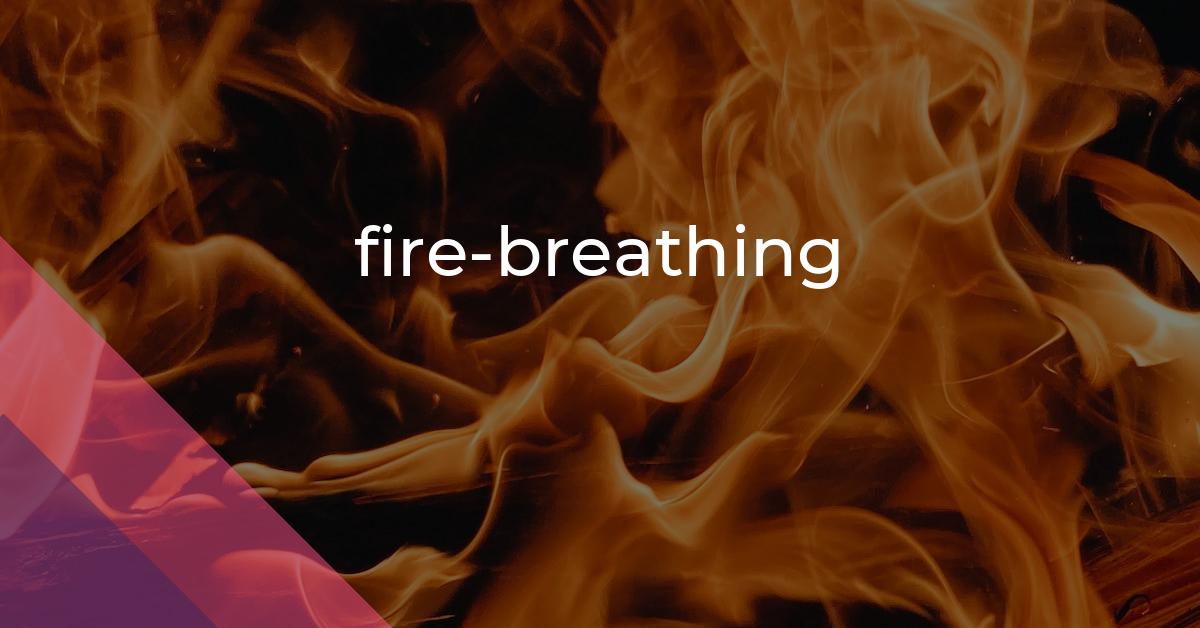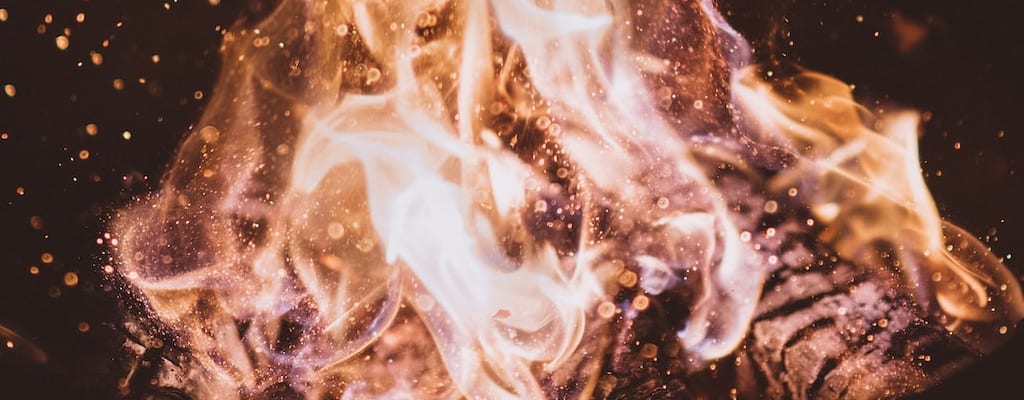fire-breathing: Idiom Meaning and Origin
What does ‘fire-breathing’ mean?
The idiom "fire-breathing" means someone or something that is extremely angry, aggressive, or fierce.

Idiom Explorer
The idiom "spit feathers" means to be extremely angry or frustrated.
The idiom "kindle-fire" means to ignite or arouse strong emotions or passions within someone or a situation.
The idiom "itchy trigger finger" is used to describe someone who is easily provoked or quick to react, especially with aggression or violence.
The idiom "in someone's face" means to confront or challenge someone in a direct and aggressive manner, often done to assert dominance or to express anger or frustration.
The idiom "in high dudgeon" means to be in a state of extreme anger or resentment.
The idiom "hot under the collar" means to become angry or agitated, often due to a frustrating or irritating situation.
The idiom "hotter than a pistol" means something or someone that is very exciting, dynamic, or popular. It suggests a high level of energy, enthusiasm, or success.
The idiom "hit the roof" means to become very angry or furious about something.
The idiom "hissing hot" is used to describe something that is extremely hot or scalding. This expression conveys the intense heat and the potential danger associated with it.
The idiom "guns blazing" means to engage in a task or activity with great determination, energy, and enthusiasm.
The Origins
Fire-breathing is an idiom that originated from ancient mythology and has evolved over time to have a figurative meaning in modern language. It is a metaphorical expression used to describe someone who is extremely angry or aggressive, often characterized by their fierce and intense behavior. The idiom has its roots in the mythical creatures known as dragons, which were believed to have the ability to exhale fire.
In ancient mythology, dragons were depicted as powerful and fearsome creatures capable of breathing fire. This imagery has been ingrained in many cultures and has contributed to the development of the idiomatic expression "fire-breathing." The idea of fire-breathing dragons has evoked a sense of awe, danger, and ferocity through the ages, leading to its metaphorical use to describe someone displaying similar qualities in their emotions or actions.
Throughout history, literature and art have often depicted fire-breathing dragons as symbols of chaos, destruction, and powerful forces. This association with fiery breath and its destructive potential has been transferred to the figurative use of the idiom. When describing someone as "fire-breathing," it denotes a state of extreme anger or aggression, suggesting that their emotions or actions are intense and potentially harmful.
In modern language, the idiom "fire-breathing" is often used in various contexts to characterize individuals or entities that exhibit an intense and aggressive demeanor. It can be used to describe politicians, activists, or critics who openly express their opinions and fight passionately for their cause, sometimes to the point of intimidating or overwhelming others with the strength of their arguments or actions.
Focusing on the idiom "spit feathers," this phrase is often used in relation to someone who is extremely angry or frustrated. It conveys a sense of intense emotion, similar to the idiom "fire-breathing." When someone is "spitting feathers," it suggests that they are so angry that they are figuratively spitting out feathers in their frustration. This idiom amplifies the vividness and impact of the speaker's anger, emphasizing the intensity of their emotions.
Furthermore, the idiom "fire-breathing" can also be used in a more lighthearted manner to describe someone with a fiery personality, characterized by their vivacity, energy, and enthusiasm. This usage highlights the positive aspects of the idiom, emphasizing the passion and fervor that an individual brings to a particular activity or situation.
Another related idiom, "fire in anger," is used to describe someone who displays an intense and explosive rage. It implies that the person's anger is so strong that it resembles a raging fire, uncontrollable and consuming. This idiom reinforces the idea of fire as a symbol of intense emotion, further illustrating the connection between fire-breathing and intense anger.
It is important to note that the figurative use of the idiom does not imply that the individual literally breathes fire. It is a metaphorical expression, rooted in the mythical imagery of dragons, used to convey the intensity and forcefulness of someone's emotions or actions. The idiom "fire-breathing" serves as a powerful tool for evoking vivid imagery and capturing the essence of a person's temperament or behavior.
Overall, "fire-breathing" is an idiom that has its origins in ancient mythology and has evolved to have a metaphorical meaning in modern language. It is used to describe individuals or entities that exhibit extreme anger or aggression, often likened to the fearsome qualities of fire-breathing dragons. The idiom captures the intensity and forcefulness of someone's emotions or actions, whether in a negative or positive light. The cultural and historical significance of dragons as symbols of power and destruction has contributed to the enduring and evocative nature of this idiom.
Example usage
Examples of how the idiom *fire-breathing* can be used in a sentence:
- After getting a poor performance review, the angry boss stormed out of the meeting room like a fire-breathing dragon.
- The politician's fire-breathing speech against corruption rallied the crowd and garnered him a lot of support.
- She had to face the fire-breathing critics who relentlessly attacked her work during the press conference.
More "Metaphorical" idioms



